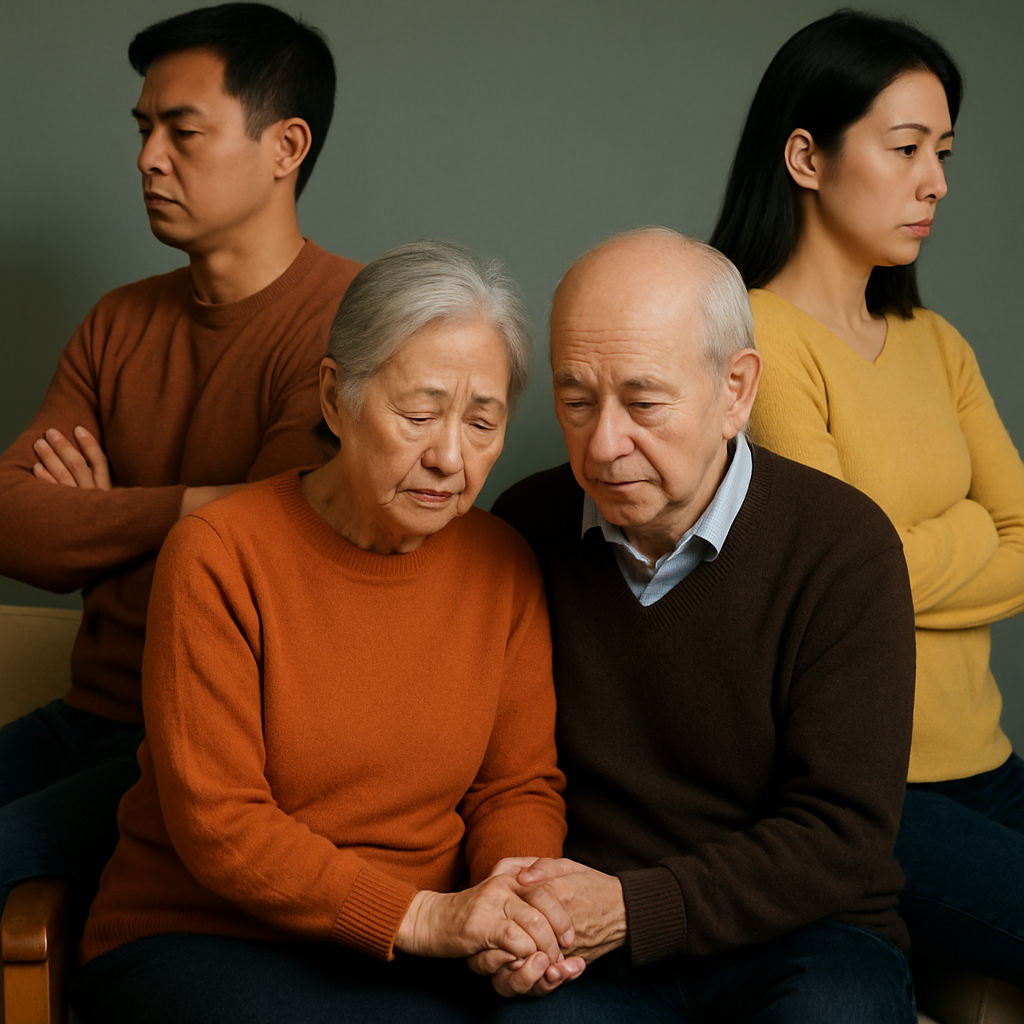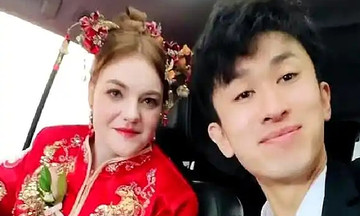Ms. Qian and her late husband had two sons and three daughters. They raised their children, saw them married, and helped them establish their own families.
When Ms. Qian was in her 50s, her husband suffered a stroke, leaving him partially paralyzed. He passed away 10 years later. Ms. Qian lived alone as her children, now with families of their own, rarely visited.
Three years ago, she met a man through a mutual acquaintance. They found solace in each other's company, married, and moved in together. "Since remarrying, mom has been much happier," her youngest daughter said.
Fearing gossip and disapproval from her children, Ms. Qian didn't announce her remarriage. However, news eventually reached her five children. Her three daughters congratulated her, supporting her newfound happiness. Her two sons, however, felt she had brought shame upon them.
The sons cut off contact and stopped providing financial support. The conflict escalated earlier this year when Ms. Qian's new husband suffered a sudden brain hemorrhage, becoming bedridden. Shortly after, she was hospitalized with a stomach hemorrhage, rendering her unable to care for herself. Her three daughters took turns caring for her, but her two sons remained absent, not even calling to inquire about her health.
 |
Illustrative image: AI |
Illustrative image: AI
In despair, Ms. Qian asked her youngest daughter to contact a television program to help reconcile with her sons.
When reporters interviewed the eldest son, he said he was willing to contribute financially but refused to provide direct care. He stated he wouldn't "support a remarried mother" and worried about "losing face." He mentioned past financial contributions, installing air conditioning, and repairing his mother's house, but her rebuilding and subsequently leaving made it difficult for him to accept the situation. His wife expressed frustration over being labeled unfilial by villagers.
Family law attorney Xi Junqi confirmed that, according to the Civil Code, children are obligated to support their parents even if they remarry. After much persuasion, the eldest son agreed, but on the condition that "if mother returns home, I will care for her."
In China, remarriage among older parents often faces strong opposition from children, particularly in rural areas where traditional thinking and "face" remain deeply ingrained. In many cases, children sever ties or refuse support, reasoning that their parents "have new caregivers" or fearing family assets will be shared with the new spouse.
A survey reveals that 65% of older adults desire to remarry but haven't due to their children's disapproval. This conflict reflects the gap between parents' need for personal happiness and their children's prejudices and economic interests.
Nhat Minh (According to 163.com/yahoo)












